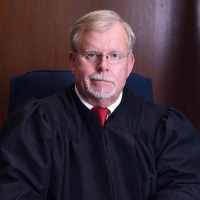Stacy Criminal Lawyer, North Carolina
Peter Mack
✓ VERIFIEDCriminal, Traffic
Peter Mack, Jr. was a district court judge for the 3B Judicial District, serving Carteret, Craven, and Pamlico counties of North Carolina. Mack worked... (more)
FREE CONSULTATION
CONTACTFREE CONSULTATION
CONTACTWilliam Joseph Kennedy
Traffic, Employment Contracts, Divorce & Family Law, Criminal
Status: In Good Standing
Philip Joseph Clarke
White Collar Crime, White Collar Crime, Felony, Criminal, Criminal
Status: In Good Standing


